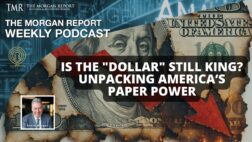For many, the world of finance is a complicated system better left to the experts. But, what the average American doesn’t realize is, that if left to the “experts,” the world of finance could come crashing down. What will be the cause of this potential imploding of the global financial infrastructure? The answer is simple: derivatives. You may be asking yourself what derivatives are and how they could possibly have such a grand impact on our world.
The Definition of a Derivative
In the simplest of terms, a derivative is a contract that is established between two parties that ultimately determines what the payment agreement will be between the them. But, since this definition still leaves things in general terms, it is easier to understand derivatives by looking at what they do rather than by what they are. Derivatives impact how financial institutions calculate the potential payout of an investment.
The Greater Impact of Derivatives
When derivatives were first used, they were there as a protection, as a way to avoid risk. But, in recent years, they have become based on speculation so much that derivatives are no longer realistic. This means, the payoff of investments is over calculated to the extent that there would not be enough money in the world to cover them all if they were all to be cashed in all at once. So, if the world’s financial market were a casino, and all of the investors were the players, if they all won at the same time, it would end up breaking the house.
Right now, the top U.S. banks have a strong grip on the financial outcome of our nation. In 2002, just over half of all banking assets in our country were managed by the top 10 U.S. banking institutions. Just short of ten years later, that number has jumped to over 75 percent. This rapid control the U.S. banks are gaining over the nations funds should be of concern since many of these top banks have a high exposure to derivatives. And, essentially, if over speculating derivatives were to cause just a few of these banks to fall, then a good portion of our overall banking assets would fall with them. And, this would cause a global financial crisis since there is no government that would be capable of bailing out these banks if that were to happen.
Several years ago my speaking presentation started off with a short film clip about the size and potential destructive force of the derivatives issue. One of the first places that I played this video was in London and a few snickers went off in the background. The “comments” were especially directed at the idea of bank failures and that the entire system was so fragile and interconnected.
Well, a year later I was back in London and Black Rock had failed and the British were rather nervous to put it is polite terms. Not to gloat, but only to reinforce the problem some brief comments were made and we showed the film clip again. It was received much differently the second time, nothing like a dose of reality for bankers, brokers and fund managers to perceive things differently.
The Solution
At this point in the cycle of a currency crisis it is primarily on an individual basis that a solution exists, meaning that monetary assets outside the mainstream must be owned. Obviously for those familiar with this issue know precious metals offer the only viable way to hold and save real wealth outside the bond and equity markets. Longer term it is more difficult to state how the system will “right” itself because for the first time this currency crisis is truly global and we are all interconnected.
David Morgan



